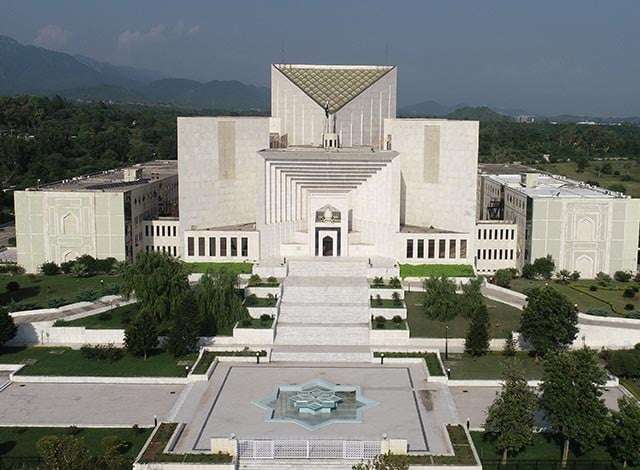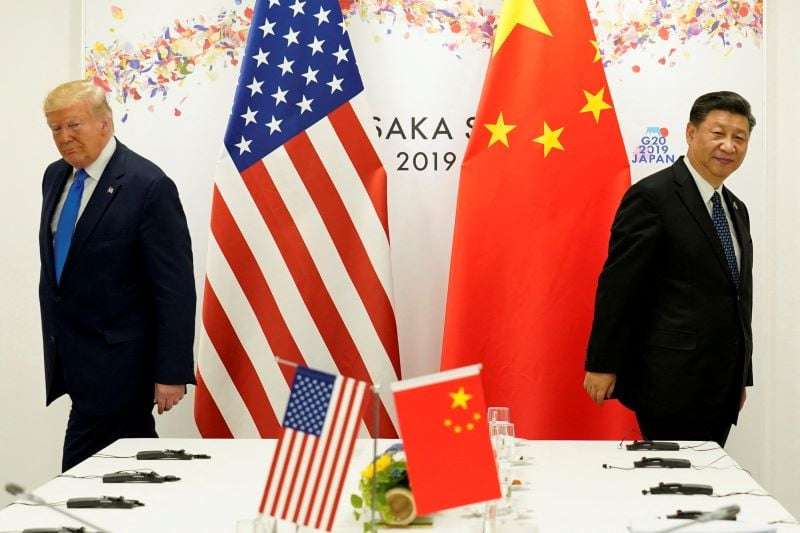Introduction
The Supreme Court of Pakistan recently dismissed a petition challenging the extension of the army chief’s tenure due to the non-appearance of the petitioner. The decision highlights the complexity surrounding the country’s military leadership and the political landscape that influences it. This article explores the details of the case, the recent legislative amendments concerning the army chief’s tenure, and the broader context of judicial reforms in Pakistan.
Background: The Petition and Its Dismissal
Petitioner’s Absence Leads to Dismissal
A seven-member constitutional bench of the Supreme Court, led by Justice Aminuddin Khan, reviewed the petition challenging the extension of the army chief’s tenure. The petitioner, Mehmood Akhtar Naqvi, had initially filed the challenge against the extension but failed to appear in court despite multiple notices. The Registrar’s Office had raised several objections regarding the admissibility of the petition, which argued that the amendment to the Army Act violated constitutional limits on military service extensions.
However, due to the petitioner’s failure to engage with the court, the bench dismissed the petition for non-prosecution. The court expressed its concern over the petitioner’s non-compliance with notices and failure to make a case, which the bench deemed as a lack of intent to pursue the matter seriously.
Constitutional Bench’s Role in the Case
The constitutional bench, formed to address the matter, emphasized the importance of adhering to legal procedures and deadlines. Their decision to dismiss the case underscored the court’s commitment to ensuring that legal proceedings are not unduly delayed by absent parties. The bench’s verdict also reflected the broader context of Pakistan’s judicial challenges and how procedural lapses could impact the effectiveness of the legal system.
Context: Legislative Changes Regarding Army Chief’s Tenure
Recent Amendments to Military Laws
The issue of extending the tenure of military chiefs has been a topic of considerable debate and legislative activity in Pakistan. Earlier this year, the National Assembly approved a legislative amendment that extends the tenures of the country’s military chiefs, including the army chief, from three to five years. This move was followed by swift approval in the Senate, with the amendments soon receiving final assent from President Asif Ali Zardari.
The legislative changes seek to standardize the retirement and reappointment processes across all branches of the military. By removing age limits and increasing tenure flexibility, the amendments empower the president, on the advice of the prime minister, to appoint or reappoint military chiefs for up to five years. This flexibility also allows military leaders to continue serving beyond the earlier age limit of 64 years if national security concerns or other critical needs arise.
Controversy Surrounding the Extension
The decision to extend the army chief’s tenure is politically sensitive, as it reflects a consolidation of military power in Pakistan. Critics argue that these changes undermine the principles of democratic governance, while proponents contend that the extended tenure ensures stability and continuity in military leadership, especially in the face of security challenges.
Despite these differing views, the legislative amendment has been passed with a majority vote, amidst intense protests from opposition parties. The opposition argues that such amendments erode the system of checks and balances and may lead to an overextension of military influence over civilian affairs.
Implications of the Army Chief’s Tenure Extension
Impact on Pakistan’s Governance
The extension of the army chief’s tenure is a significant development in Pakistan’s governance landscape. The military’s influence has historically been a powerful force in the country, with several military coups and interventions in the political process. The recent move to extend the tenure of military leaders is seen by some as a way to ensure greater stability in a country that has experienced multiple regime changes and security threats.
The legislation allows the president and prime minister to jointly decide on military leadership appointments, further centralizing control over the armed forces. While this may ensure continuity, it also raises concerns about the potential for increased military influence in Pakistan’s civilian politics, especially in a context where political institutions have struggled with stability.
Strengthening Military Command
One of the key rationales behind the tenure extension is the need for strong and uninterrupted military leadership in the face of security challenges. With ongoing concerns over Pakistan’s border security, internal instability, and involvement in regional conflicts, many argue that the country’s military needs experienced leadership to navigate these complexities.
The proposed changes also aim to align the armed forces’ leadership structure, creating a more cohesive system across all branches of the military, including the Army, Navy, and Air Force. By providing the flexibility for reappointments and extensions, the government hopes to ensure that leadership can be maintained as needed, without being constrained by rigid age limits or tenure periods.
Judicial Reforms and Challenges
Proposed Changes to the Judicial System
The government’s legislative focus is not limited to military leadership. Alongside the amendments to the Army Act, the government has also introduced proposals to increase the number of judges in Pakistan’s Supreme Court and the Islamabad High Court. The Law Minister, Azam Nazeer Tarar, presented these proposals, highlighting the need to address the backlog of pending cases in the judicial system.
The Supreme Court Number of Judges (Amendment) Bill 2024 suggests increasing the number of judges in the Supreme Court to 34, with the aim of reducing delays in legal proceedings. The government also introduced the Islamabad High Court Amendment Bill 2024, proposing an increase in the number of judges in the Islamabad High Court from nine to twelve.
These judicial reforms come in response to the growing backlog of cases at the country’s highest courts. The government’s goal is to enhance the judicial capacity to handle the increasing caseload, improve the efficiency of the courts, and reduce delays in justice delivery.
Protests from the Opposition
The proposals for judicial reforms and the military amendments have sparked heated protests, particularly from opposition parties. In the National Assembly, opposition members disrupted proceedings, chanting slogans, surrounding the Speaker’s dais, and even tearing copies of the bill in protest. This disruption continued during the voting session, with some members engaging in physical altercations.
Despite the opposition’s objections and protests, the amendments were passed with a majority vote, signaling the government’s determination to move forward with these legislative changes.
Conclusion: The Path Forward
Impact on the Military and Judiciary
The dismissal of the petition challenging the extension of the army chief’s tenure and the passage of related legislative amendments reflect broader trends in Pakistan’s political and judicial systems. The government’s focus on military leadership stability and judicial reform highlights the challenges Pakistan faces in balancing the powers of the military and judiciary with democratic governance.
While these legislative changes may provide stability in terms of military leadership and judicial efficiency, they also raise important questions about the balance of power in Pakistan. The absence of the petitioner in the army chief’s tenure case and the ongoing protests from the opposition underscore the contentious nature of these issues, which are likely to continue influencing Pakistan’s political discourse in the years ahead.
Frequently Asked Questions (FAQs)
1. Why was the petition against the army chief’s tenure extension dismissed?
The petition was dismissed due to the petitioner’s failure to appear in court despite multiple notices. The Supreme Court deemed this non-appearance as a lack of intent to pursue the case.
2. What legislative changes were made regarding the army chief’s tenure?
The amendments to the Army Act extended the tenure of military chiefs from three to five years and removed previous age limits, allowing the president to reappoint or extend the terms of military leaders as necessary.
3. How did the opposition react to the military tenure extension?
The opposition parties strongly protested the amendments, arguing that they undermined democratic principles and led to increased military control over civilian affairs.
4. What other reforms were introduced alongside the army tenure extension?
Alongside the military tenure amendments, proposals were made to increase the number of judges in the Supreme Court and Islamabad High Court to address the growing backlog of cases.
5. How might these legislative changes affect Pakistan’s future governance?
The changes are expected to consolidate military leadership and improve judicial efficiency, but they also raise concerns about the centralization of power and the potential for reduced political accountability.



